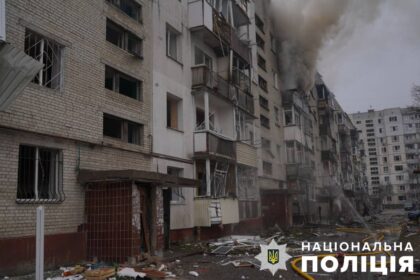The article discusses the uncertainty and stress faced by Ukrainian refugees in the United States due to changes in immigration policies under the Trump administration. The U.S. had provided Temporary Protected Status (TPS) to Ukrainians, allowing them to live and work in the country without fear of deportation. However, with the TPS program set to expire in 2026, many Ukrainians are now facing uncertainty about their future.
Anna, a Ukrainian refugee who fled her home after the Russian invasion, is quoted as saying that she hopes to stay in the U.S. and build a new life, but fears being forced to return to Ukraine. She notes that many of her friends have no place to return to due to the destruction of their hometowns or ongoing Russian occupation.
Another Ukrainian refugee, Oleksandra Budenko, has had her TPS expire and is waiting for an extension. However, like Anna, she may still be at risk of being deported if her application is not approved.
Lina Ngo, a Vietnamese-Ukrainian who arrived in the U.S. through a program called U4U, is also facing uncertainty about her future. Her organization, which helps Ukrainian and Afghan refugees, has lost funding due to cuts in foreign aid under the Trump administration. As a result, many of their clients are afraid to visit the office, fearing detention by Immigration and Customs Enforcement (ICE).
The article highlights the challenges faced by Ukrainian refugees in the U.S., including uncertainty about their future, fear of deportation, and difficulty accessing basic services like education and healthcare.
Overall, the article presents a nuanced view of the complex issues surrounding immigration policies and the impact on individuals and communities affected by conflict and displacement.












